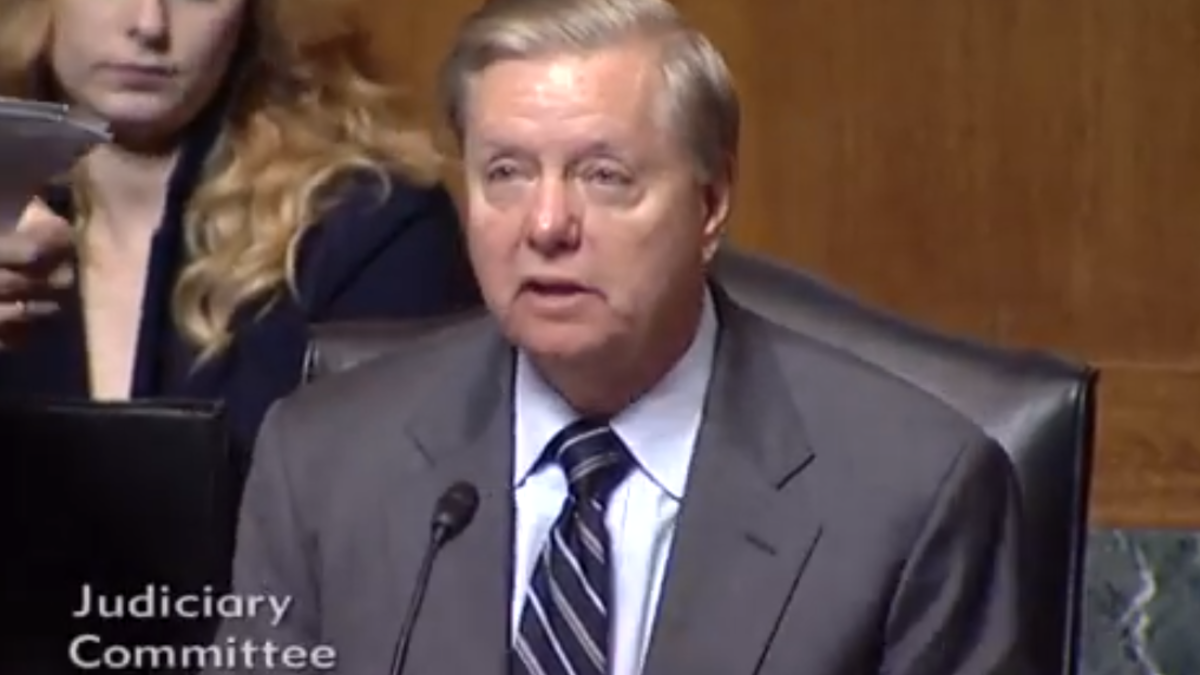Sen. Graham Attempts to Clear Path for STELAR Sunset
The professional video industry's #1 source for news, trends and product and tech information. Sign up below.
You are now subscribed
Your newsletter sign-up was successful
WASHINGTON—As the debate on whether to allow STELAR to expire at the end of the year or be in line for another extension continues, Sen. Lindsey Graham (R-S.C.), who is chairman of the Senate Judiciary Committee, which shares jurisdiction over STELAR with the Commerce Committee, has issued a series of questions for the major broadcasters to help them detail why it is time for STELAR to expire.

STELAR is a license that allows satellite providers to import distant network-affiliated TV signals into markets that are not able to get them without having to individually negotiate with broadcasters. It is set to expire on Dec. 31. Broadcasters are primarily on the side of letting it expire, while MVPDs are hoping for another extension.
The Senate held a hearing last week on the subject. Commerce Chair Roger Wicker (R-Miss.) said at the hearing that he thought STELAR was critical for providing video services to rural residents, and has designs on beginning an extension plan by Nov. 13.
Sen. Graham on Friday, Nov. 1, sent individual letters to ABC, CBS, Fox and NBC in which he inquires about each’s plan to transition from STELAR to a free market, providing specific questions that he is seeking to have back by Nov. 12.
“My constituents, and those of other Members of Congress, need assurances that during this transition to a free market their favorite network news and prime time shows will continue to be available to them on their current satellite provider,” Graham wrote in the letters. “More clarity is needed from all the major networks and satellite providers on how network shows will continue to be available to satellite customers for the next calendar year during which a transition to a free market can occur.”
Here are the questions that Sen. Graham is seeking answers to:
- Will their respective networks provide a one-year license to satellite providers for network-owned shows in exchange for a "market-by-market" usage fee from each provider, including for use by long-distance truckers and RV owners, who also rely on the license?
- Will the network agree, for that transition period, to charge a rate comparable to the compulsory license rate charged by the Copyright Royalty Board for 2018?
- Will the network work with their affiliates to negotiate during this transition year, on a carriage agreement for "full local-into-local on both Dish and DirecTV for deals beginning in Jan. 1, 2021?
- For areas without local affiliates, will the network commit to negotiating with Dish and DirecTV on a carriage agreement beginning no later than Jan. 1, 2021?
- Will the network keep the committee informed on its progress toward such agreements?
The National Association of Broadcasters released a response from CEO and President Gordon Smith in support of Graham’s efforts.
The professional video industry's #1 source for news, trends and product and tech information. Sign up below.
“Broadcasters across the nation thank Sen. Graham for his leadership and recognition that STELAR’s expiring distant signal license is outdated and that the U.S. Copyright Office has recommended that it not be renewed,” said Smith. “Long having outlived its usefulness, STELAR’s distant signal license now serves as incentive for dominant pay-TV platform AT&T DirecTV to serve its satellite subscribers with out-of-market rather than local broadcast channels.
“The practical impact of this outdated law means that from Maine to Montana and from Kentucky to Texas, DirecTV pipes in broadcast network programming from New York and Los Angeles while denying viewers access to their hometown TV stations. This is a business decision that AT&T is making to underserve these viewers through continued use of STELAR’s subsidy, and we thank Sen. Graham for offering a better path for local viewers and local communities.”
No official decision on STELAR has been made.
